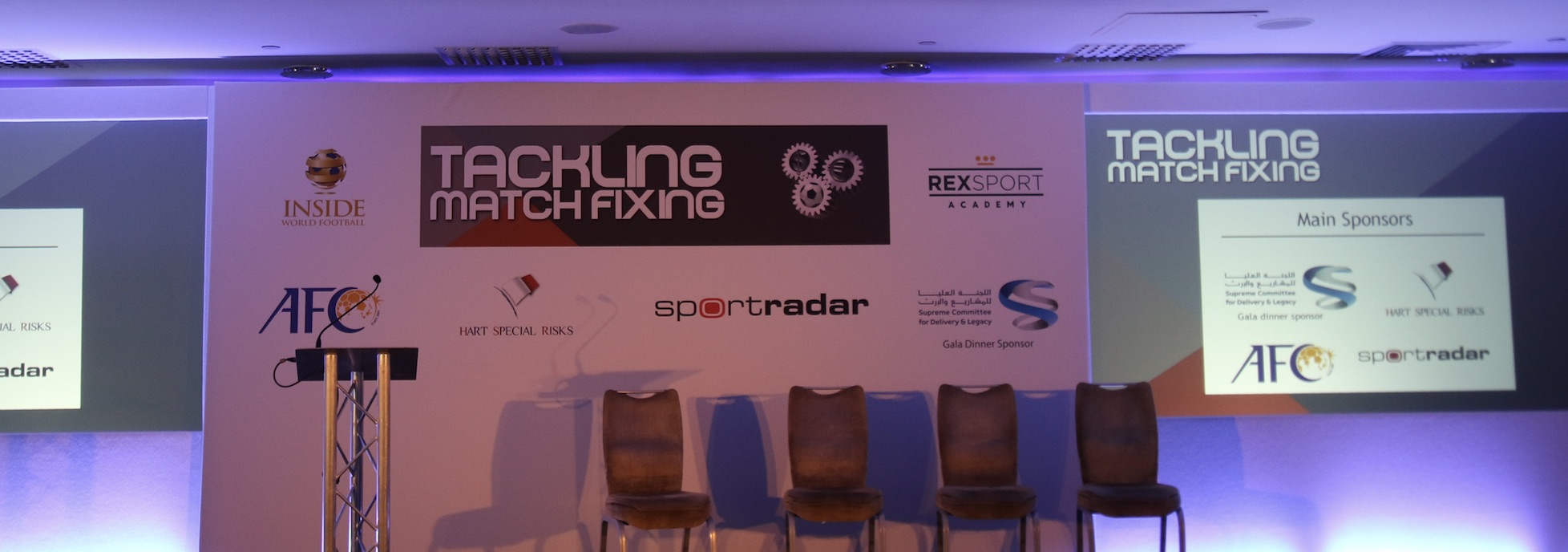By Andrew Warshaw
March 12 – Football is losing the war against matchfixing despite the rhetoric put out by established bodies attempting to tackle the sport’s most critical issue.
That was the bleak assessment provided by Emanuel Macedo de Medeiros, former CEO of the European Professional Football Leagues when the landmark inaugural Tackling Matchfixing conference wound up Saturday after two days of intensive debate.
Medeiros, one of Europe’s most passionate activists promoting good governance in football, is now CEO of the recently established Sports Integrity Global Alliance (SIGA), which brings together sport, governments and international organisations from every region in the world to safeguard the integrity of sport.
Pulling no punches, Medeiros said the idea that more education would help to solve the crisis was not, on its own, nearly sufficient.
“It’s great to see some movement, it’s great to see all the investigation work and it’s great to see the investment put into the fight against matchfixing. And yet we are not winning this fight, we are losing it,” charged Medeiros. “And we are losing it big time.”
“For years we turned a blind eye. There was a navel-gazing attitude among governments and sports governing bodies and the whole industry.”
Saying there was an urgent need for a “robust, legislative regulatory framework”, he continued: “Sports betting fraud and matchfixing is not yet considered a criminal offence in most countries. Can you believe this?
“What the hell are governments doing? This is about organised crime run by people who do not see sport through the same prism as the rest of us. They use all the loopholes they can to expand their activities and their criminal profits.”
Earlier in the conference, delegates heard how FIFA had recently brought together representatives from at least two confederations to debate the best way forward to tackle matchfixing.
But Medeiros said there was far too much window dressing among various stakeholders.
“You cannot tackle matchfixing if you do not consider what is happening with club ownership. If we really mean business, we need to work as a team in terms of sports government bodies, governments and law enforcement agencies.”
Exclaiming that he was “totally fed up” with all the buck passing, he added: “We are far far away from where we should be. Is there true information exchange within the betting industry? I have my doubts.”
On the same panel as Medeiros, FIFPro’s general secretary Theo van Seggelen provided specific examples of just how worrying the scourge of matchfixing has become.
Van Seggelen recalled a meeting he had some time ago in Thessalonika with east European members of FIFPro and some 150 players.
“At one point I asked who among them had been involved in matchfixing and to my surprise 120 players raised their hands,” said van Seggelen. “We extended the meeting by two days.”
While FIFPro had a zero tolerance attitude to matchfixing, van Seggelen said, east European players were often victims of the system with little protection due to the fact that many federations refuse to offer employment contracts and force players to become self-employed.
Van Seggelen cited one instance of a club president walking into the dressing room before a game and offering bonuses to his players to throw a match.
“I’m not saying that players had to accept this but they hadn’t been paid for six months already,” van Seggelen told his audience. “I could give you 10 other examples of similar behaviour.”
Van Seggelen said it was “frustrating” for his organisation that bodies like the European Commission were not doing more to help. “It’s easy to say we have to fight for solutions ourselves. We are talking about vulnerable young people.”
Part of the discussion base during the two-day conference focussed on whether there was too much betting in football and questioned whether betting companies should be prohibited from sponsoring clubs as drinks companies are.
Russell Wallace, senior compliance manager at Paddy Power, argued this was not where the problem lay.
“Personally I don’t believe that has any implications on matchfixing,” said Wallace. “The fact that there is a betting company’s name on a footballer’s shirt should not in any way influence that player to influence a match. Having a regulated betting industry where there are processes in place to identify issues is a much better situation than pretending no betting exists. We actually need to go the other way and have a fully regulated worldwide betting market.”
Contact the writer of this story at moc.l1744313725labto1744313725ofdlr1744313725owedi1744313725sni@w1744313725ahsra1744313725w.wer1744313725dna1744313725

